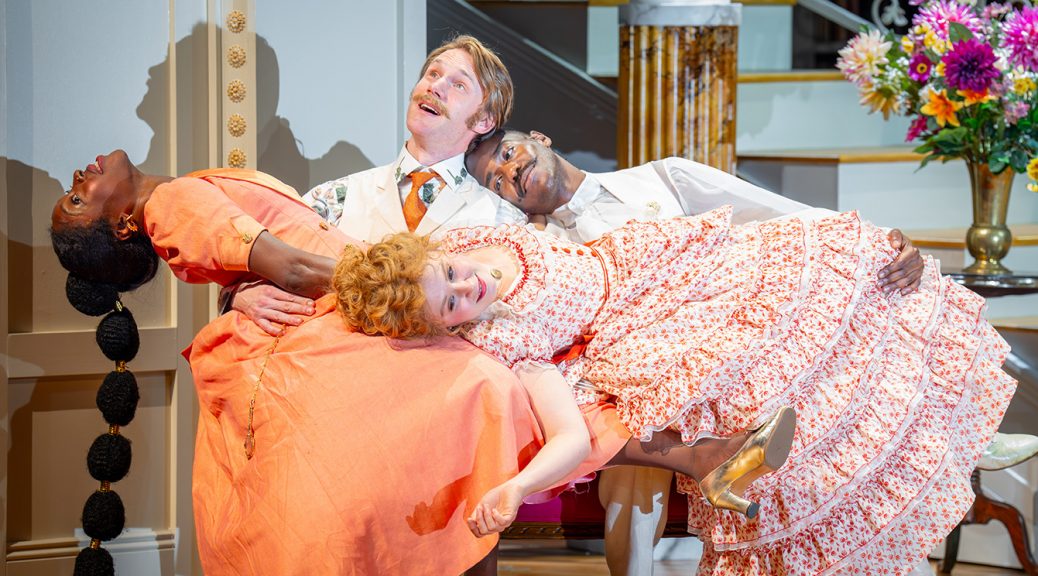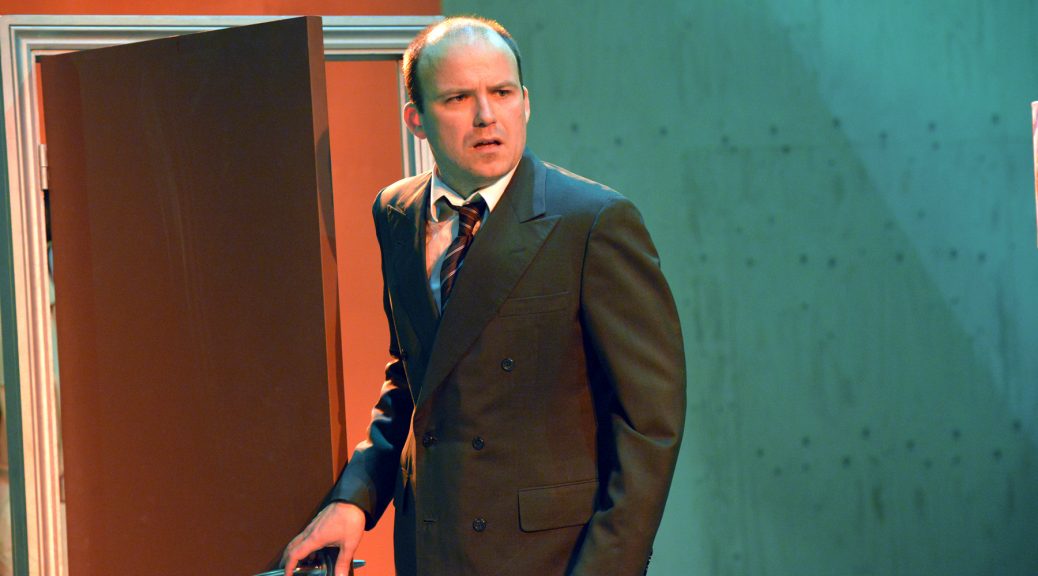Max Webster’s hit revival of Oscar Wilde’s masterpiece lives up to its sold-out status. The star-studded cast does not disappoint, Rae Smith’s design is gorgeous and a modern sensibility adds surprise touches that excite.

As introducing Algernon in drag indicates, Webster embraces Wilde’s risqué side. There no point hiding that the practice of ‘Bunburying’- taking on a second identity – is a code to cover escapades. Algernon and his pal Jack camp it up in effete style, literally skipping around the stage. There’s even the suggestion the couple are more than just friends. Taking the roles, Ncuti Gatwa and Hugh Skinner are enormous fun and look as if they are thoroughly enjoying themselves.

So, what happens when it comes to the guys falling in love with women? Or when it comes to the final revelation about their own familial relationship? It’s easy to see a claim here for fluidity (they each have two identities already!). The idea is applied to Gwendolen and Cecily, too, who could end up as lovers rather than sisters, adding new jokes to the fantastic performances from Ronkẹ Adékọluẹ́jọ́ and Eliza Scanlen.
Or you could just focus on Wilde’s silliness. Really, nothing should be taken seriously. The Importance of Being Earnest turns the world upside down (hence the production’s surprising encore). It might be said Webster doesn’t take Wilde as seriously as Dominic Dromgoole, whose enlightening Classic Spring series was a rare treat. But there is a boldness to Webster’s work that’s to his credit.

There is more to praise. An excellent triumvirate of Sharon D Clarke, Richard Cant and Amanda Lawrence, taking the roles of Lady Bracknell, Canon Chasuble and Miss Prism, are superb. Clarke’s accent is a masterstroke, while the courting curate and his schoolmistress get big laughs as well as being, well, cute! As a final thrill, the physicality in the show, from Gatwa and Skinner in particular, is a genuine surprise. Comedies of manners can be static affairs, Wilde’s lines imposing, but this cast does a great job with physical comedy and stylised movements that makes the production stand out.
Until 25 January 2025
Photos by Marc Brenner


